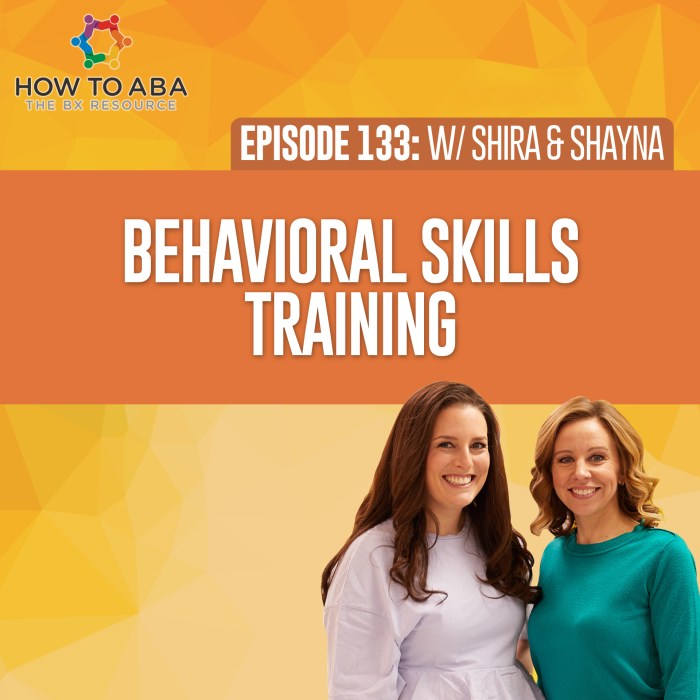Why is role playing helpful in behavioral skills training bst – Why is role playing helpful in behavioral skills training (BST)? This question opens the door to an exploration of the transformative power of role-playing, a technique that empowers individuals to develop essential behavioral skills in a safe and engaging environment.
Role-playing in BST provides a unique opportunity for participants to practice and refine their skills in realistic scenarios, fostering self-awareness, empathy, and problem-solving abilities. This immersive approach allows individuals to experiment with different behaviors, receive constructive feedback, and reflect on their own performance, leading to significant improvements in their behavioral repertoire.
Role-Playing in Behavioral Skills Training (BST): Benefits and Applications: Why Is Role Playing Helpful In Behavioral Skills Training Bst

Role-playing is a powerful technique used in BST to enhance the development of specific behavioral skills. It involves participants acting out real-life scenarios, allowing them to practice and refine their responses in a safe and controlled environment.
Role-playing can be particularly effective for developing skills such as:
- Communication and interpersonal skills
- Conflict resolution and negotiation
- Customer service and sales
- Leadership and management
Creating Effective Role-Playing Scenarios
Well-designed role-playing scenarios are essential for successful BST. They should include the following elements:
- Clear learning objectives
- Realistic and engaging situations
- Specific roles and instructions
- Opportunities for feedback and reflection
Scenarios should be tailored to individual participants’ needs and learning styles.
Facilitating Role-Playing Sessions
The facilitator plays a crucial role in guiding role-playing exercises. They should:
- Establish a safe and supportive environment
- Provide clear instructions and guidance
- Observe and provide constructive feedback
- Facilitate self-reflection and learning
Evaluating the Effectiveness of Role-Playing in BST
Evaluating the impact of role-playing on skill development is crucial. Methods include:
- Pre- and post-training assessments
- Participant feedback
- Observational data
Continuous evaluation and refinement ensure that role-playing interventions are effective and meet the desired outcomes.
Advanced Applications of Role-Playing in BST, Why is role playing helpful in behavioral skills training bst
Role-playing is not limited to traditional face-to-face interactions. Advanced applications include:
- Virtual reality simulations
- Online role-playing platforms
- Immersive role-playing experiences
These technologies expand the possibilities for training in complex social and organizational contexts.
Essential Questionnaire
What are the key benefits of role-playing in BST?
Role-playing in BST enhances self-awareness, improves communication and problem-solving skills, fosters empathy, and promotes generalization of skills to real-world situations.
How do you create effective role-playing scenarios?
Effective role-playing scenarios are realistic, engaging, and tailored to the target skills. They provide clear objectives, sufficient context, and opportunities for participants to practice and receive feedback.
What is the role of the facilitator in role-playing exercises?
The facilitator guides the role-playing process, establishes a safe and supportive environment, provides constructive feedback, and facilitates self-reflection.


